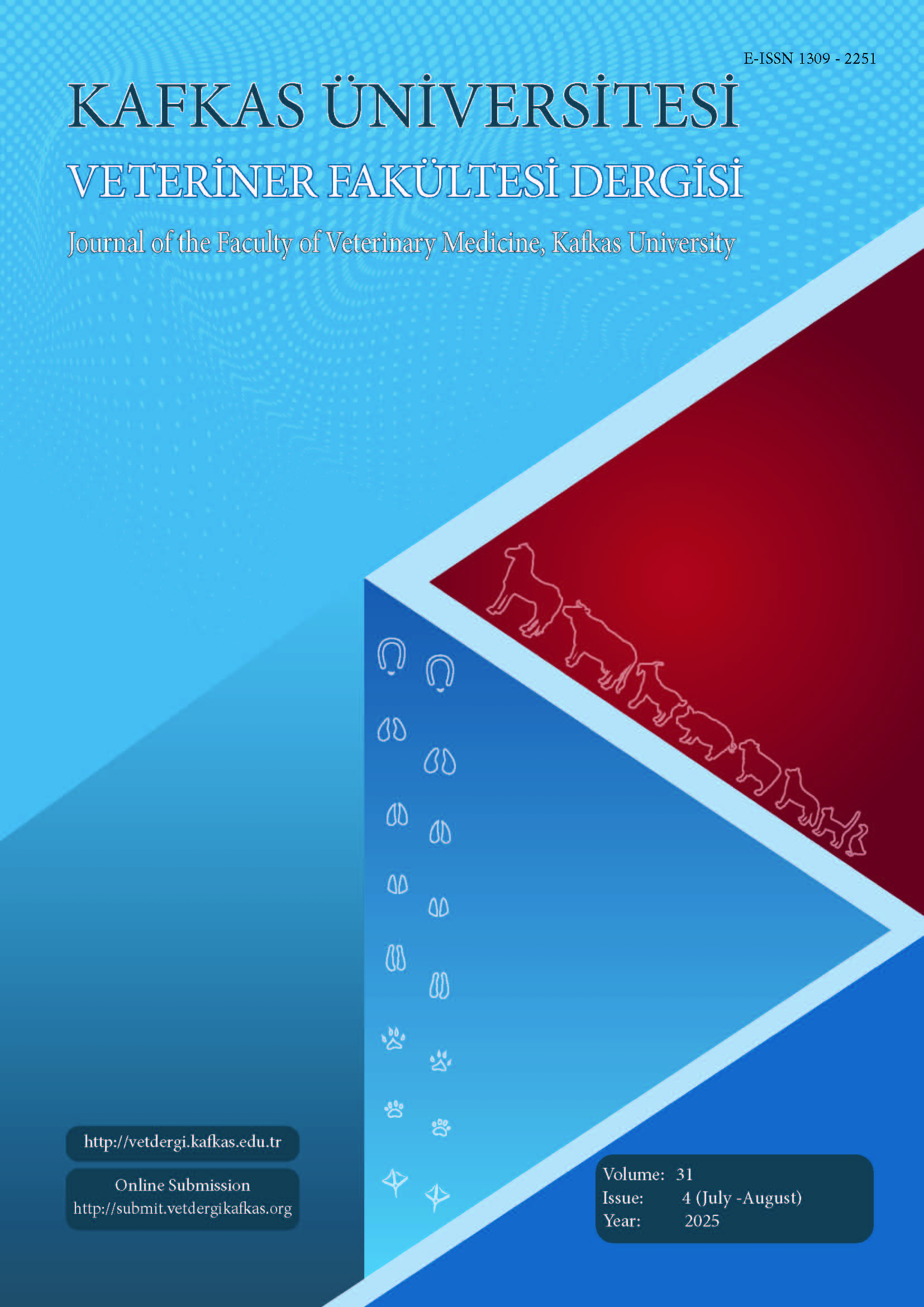
This journal is licensed under a Creative Commons Attribution-NonCommercial 4.0 International License
Kafkas Üniversitesi Veteriner Fakültesi Dergisi
2025 , Vol 31 , Issue 4
Inhibitory Effect of Immune Checkpoint Cytotoxic T-Lymphocyte- Associated Antigen-4 Inhibitor Combined with Curcumin on Tumor Growth in Mice with Lung Cancer
1Nanjing University of Chinese Medicine, Nanjing 210029, Jiangsu Province, CHINA2Jinling Clinical Medical College, Nanjing University of Chinese Medicine, Nanjing 210002, Jiangsu Province, CHINA DOI : 10.9775/kvfd.2025.33618 We aimed to investigate whether immune checkpoint cytotoxic T-lymphocyteassociated antigen-4 (CTLA-4) inhibitor plus curcumin can inhibit tumor growth in mice with lung cancer. A mouse model of lung cancer was established by injecting Lewis lung cancer cells. The mice were allocated to an anti-CTLA-4 group, a curcumin group, an anti-CTLA-4+curcumin group, and a Model group in random (n=10). The tumor inhibition rate and metastasis inhibition rate were calculated. Hematoxylin-eosin staining was performed on tumor tissues for their pathological changes. The apoptosis rate was measured by TUNEL assay. In comparison with the Model group, the tumor volume, tumor mass, number of lung metastatic nodules, and the protein and relative mRNA expressions of Bcl-2 in tumor tissues significantly decreased in anti-CTLA-4, curcumin, and anti-CTLA-4+curcumin groups, while the tumor inhibition rate, metastasis inhibition rate, apoptosis rate of tumor cells, and Caspase-3 and Bax contents in tumor tissues increased (P<0.0001). CTLA-4 inhibitor plus curcumin can inhibit tumor growth in mice with lung cancer, which may be associated with the promotion of lung cancer cell apoptosis by regulating the Caspase-3/Bcl-2/Bax signaling pathway. Keywords : Curcumin, Tumor growth, Inhibitor, Lung cancer











